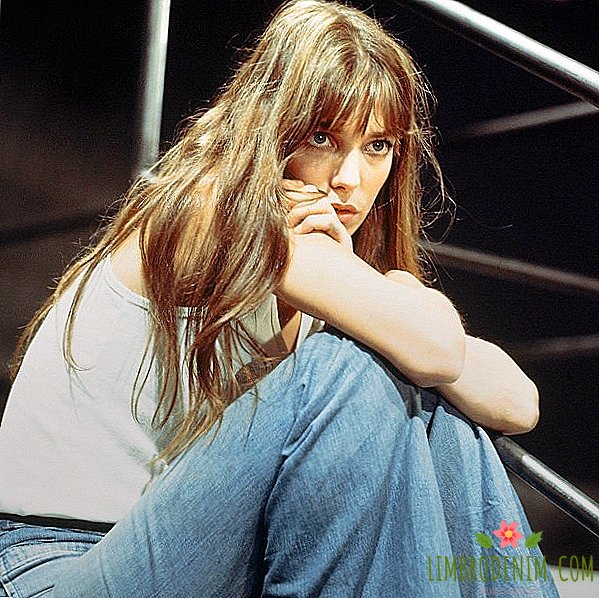Glavred "Gorky" Nina Nazarova: Why do we need a new website about books
Today launched an online magazine about literature and culture "Bitter", founded by Russian publisher and publicist Boris Kupriyanov. We met with the chief editor of "Gorky" Nina Nazarova and talked about the lack of time for reading, literary reviews and how to turn the book from an interior object into a part of life.
 It seems that everyone has become much less read. And at this time you run a website about literature.
It seems that everyone has become much less read. And at this time you run a website about literature.
At least we have less time - more precisely, the competition has intensified during this time. I remember how I lived not only without the Internet, but also without a video recorder. Then the books, of course, won over the TV with a crushing score and were the most important source of knowledge of the world. And now there is a feeling that time for reading constantly eats away progress - for example, another victory of his was Wi-Fi in the Moscow metro. Reading is increasingly turning into a conscious choice: by default, people no longer grab a book, but something else. For social networks, for example.
 On the other hand, the same social networks work as a media and advisory service: from Facebook you can completely find out about the new book.
On the other hand, the same social networks work as a media and advisory service: from Facebook you can completely find out about the new book.
Well, it's still a way to disseminate information. The question is where this information comes from. Of course, there are excellent publications in Russian that write about books and literature: Kommersant Weekend, Poster, Colta, Medusa. However, they write mostly about new books - in the framework of a general conversation about cultural innovations, about consumption. And we are reading books, not tied to when they came out. Sometimes in the mood, sometimes because someone advised, sometimes because the name of the author came across and you remembered that you wanted to read for a long time. The choice is made difficult and whimsical.
We in Gorky want to shatter this established practice of talking only about the new. Therefore, even when I order the author a review of a new thing, I certainly clarify: "If you want to talk about old works on the same topic, do not deny yourself anything." Relatively speaking, the review of the new novel about Rome can be started even from Gogol. I want to have a feeling of a living cultural process, and not just new products on the shop window.
 That is, you will go partly along the path of "Arzamas"?
That is, you will go partly along the path of "Arzamas"?
I am a big fan of "Arzamas", I love and appreciate them very much, but we still have a different approach to talking about books. They are engaged in enlightenment from the point of view of the historical context, they tell how people actually lived, thought and felt in this or that epoch and how we know about it. But in order to read "Anna Karenina" and something to think about and worry about her, it is not necessary to be aware of Tolstoy's literary position in the 1870s. The work itself is self-sufficiently valuable.
I really love the story from Mikhail Leonovich Gasparov's "Records and Extracts:" Ven. Yerofeyev was an anti-Semite. Told Lotman, who admired him. Lotman replied: "I am not interested in the intimate life of writers." This is not to say that we should turn a blind eye to anti-Semitism, of course. We just go from the books themselves, and not from the circumstances of the history of their creation - although they, of course, may also interest us.

 And also literary texts were always important for magazines - thanks to them, writers could make a name for themselves. Today, this is no longer to meet: in the same Esquire flipped through, amused and forgot, in the name of the author do not even look. How will “Gorky” deal with such texts?
And also literary texts were always important for magazines - thanks to them, writers could make a name for themselves. Today, this is no longer to meet: in the same Esquire flipped through, amused and forgot, in the name of the author do not even look. How will “Gorky” deal with such texts?
The idea is very good - in the same The New Yorker is a mandatory part of the magazine. But we have not thought about it yet. We will have a section "Fragments", where we are going to publish, on the one hand, preprints, and on the other - to re-actualize old texts that we think are relevant and important. For example, when there was an anniversary of Gagarin’s flight into space, my colleague recalled that Platonov had a wonderful story in which a man goes into space, of course, long before any Gagarin, and it is very interesting to reread it now. And to specially publish new products is a very tempting idea, but this requires separate production; maybe someday we'll do it.
 If there is a rather specific situation with the texts about books now, this is not the case with the same movie: there is, for example, the magazine Séance, in which huge texts about everything in the world go out that are not afraid of either publishing or reading. But about the literature of this journal is not. Serious reviews are published in journals for philologists, they scare and smell mothballs. Is it possible to make book reviews less old-fashioned?
If there is a rather specific situation with the texts about books now, this is not the case with the same movie: there is, for example, the magazine Séance, in which huge texts about everything in the world go out that are not afraid of either publishing or reading. But about the literature of this journal is not. Serious reviews are published in journals for philologists, they scare and smell mothballs. Is it possible to make book reviews less old-fashioned?
The format of the review that exists now is a very understandable genre: one and a half to two thousand characters with an explanation to read or not to read this or that book. And I want this hard format to loosen. Our reviews are more voluminous, and I always ask the authors to tell about the epoch or problem, about what and why it is important to know about this topic, and only then, actually, go to the book itself. This approach makes the text deeper and more interesting. For example, our review of the book by Adolf Loos “Why a man should be well dressed” at the same time tells us how Loos is important as an architect and theorist and how his ideas about appearance were embedded in his ideology.
From other experiments in the format - a series of interviews about the book education of a variety of people: now there are conversations with the poet Sergey Gandlevsky, the artist Pavel Peppershtein, the special correspondent of the “Novaya Gazeta” Elena Kostyuchenko. This is not a list of favorite books - rather, talk about what people read when they were 15, 20, or, conversely, when the 90s were in the yard; personal book experience in dynamics - after all, there are no constants in the literary picture of the world.
In this sense, the “Bookshelf” rubric on Wonderzine is very good. On this occasion, there is such a story. When I came to the first meeting with the founder of the Gorky project, Boris Kupriyanov, we sat in a cafe with him and with my colleague Ivan Aksyonov. And they reasoned that everyone around them was not writing about books wrong. And you need to imagine what they look like - serious, brutal men. And suddenly these serious, brutal men practically say: “In general, the most unexpected and fresh reading about books is the“ Bookshelf ”on the Wonderzine website. Then I immediately understood: we will succeed. And I suspect that my "Bookshelf" for them, too, has become a kind of part of the summary.
 And how do you look at the idea of showing reading as fun? For example, “Arzamas” projects like Shakespeare's emoji or fun tasks in Goodreads reading groups - how do you feel about things that seem to desacralize texts?
And how do you look at the idea of showing reading as fun? For example, “Arzamas” projects like Shakespeare's emoji or fun tasks in Goodreads reading groups - how do you feel about things that seem to desacralize texts?
I am using both hands for desacralization. Of course, we want to show that reading is not the lot of highbrow intellectuals, but, on the contrary, a natural part of life. And separately - that you should not make fun of people or condemn them for their book choice. I had a period when I even dreamed of reading "Harry Potter" at home, so that no one would see. Let the husband know, but more - no, no ... But at some point I was let go, and now I am sure that everything can be read. Do not be shy and think that some not very intellectual book makes you worse. As for specific formats - games, tests and other entertainment things, we will also do, but a little later.

 And to what extent is the design of a site devoted to literature important at all?
And to what extent is the design of a site devoted to literature important at all?
Very important! We have a full-time photo editor, Elizabeth Dedova, and she is shooting a real bukporn. Another of our working ideas is that when books are shot on a white background - this is some objectification. We try to remove the books not as a subject, but as part of the process: books that someone opens in the cinema, which someone holds under his arm. The day before yesterday we shot Bukowski’s collection entitled “From a notebook in wine stains” - we bought a bottle of red wine as a requisite and thus removed the book in the environment in which it could really be. We all read books, and we also drink wine, books are lying on the table, and there may be stains and glasses around them. In short, a book is not a beautiful thing in a vacuum that we take with clean hands in a festive atmosphere, it is part of everyday life.
 It is no secret that, on the one hand, the boundary between mass and intellectual literature is blurred, and on the other, the genre of a big novel has firmly returned. There seems to be less time for reading, and thick books are still popular, why is that?
It is no secret that, on the one hand, the boundary between mass and intellectual literature is blurred, and on the other, the genre of a big novel has firmly returned. There seems to be less time for reading, and thick books are still popular, why is that?
I would say that the love of interesting and fascinating stories told does not go away. And these stories can be very different - even though the new Franzen, even though the paper horror of Mark Danilevsky, The House of Leaves. About Danilevsky we just got material - in the center of the plot a mysterious story captured on film, a separate story about the person who found and commented on this film, and the third story about the person who found commentary on the manuscript.
In addition to the triumphant post-postmodernism and all sorts of literary allusions, it is also just a very exciting thriller - like a movie, only on paper, where the important techniques are changing fonts, inserting alien elements and so on. And this is a great bestseller for all that. So the longing of people for long, fascinating stories is hardly anywhere. What has become worse now is with the stories. I think that the stories in the struggle for attention lose Facebook, and the novels win at the expense of the big world that they create.
 Another interesting point: although the death of paper books predicted for many years, it seems that the rate of their extinction is still lower than that of global warming. What do you read books and what do you think about the future of the paper version?
Another interesting point: although the death of paper books predicted for many years, it seems that the rate of their extinction is still lower than that of global warming. What do you read books and what do you think about the future of the paper version?
I mostly read on the Kindle, because it always fits in my handbag, but the book does not fit all and not always. But in general I think that nothing bad will happen to paper books for a long time. In fact, we would least like to oppose one thing to another - we want to talk on the site, of course, first of all, about books as works, and not material objects. The main thing is reading, and in what format it is already a matter of personal choice. We love books in any form: in paper, and in electronic, and even as perfume with the smell of printing ink. But this is a spoiler.
The photo: Maksym Alokhin - stock.adobe.com





